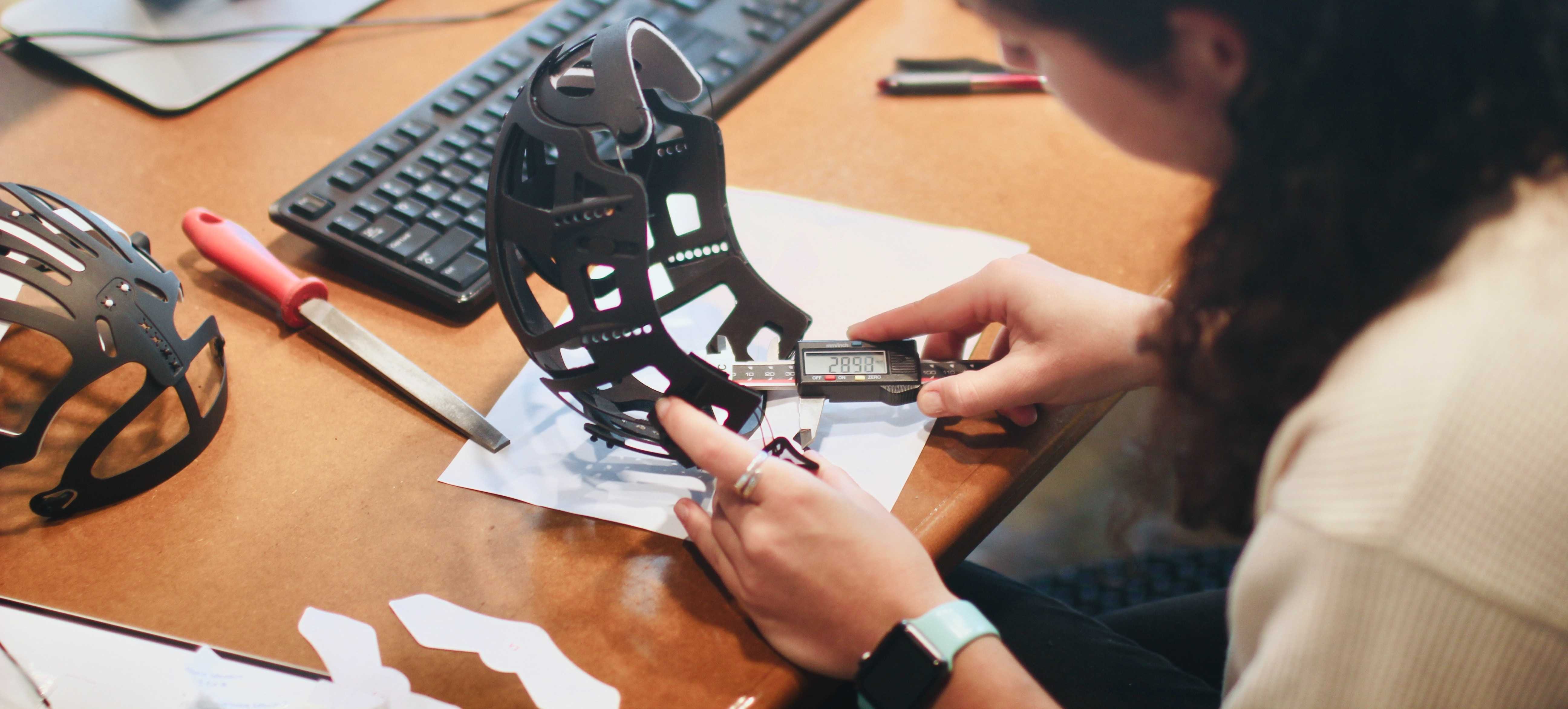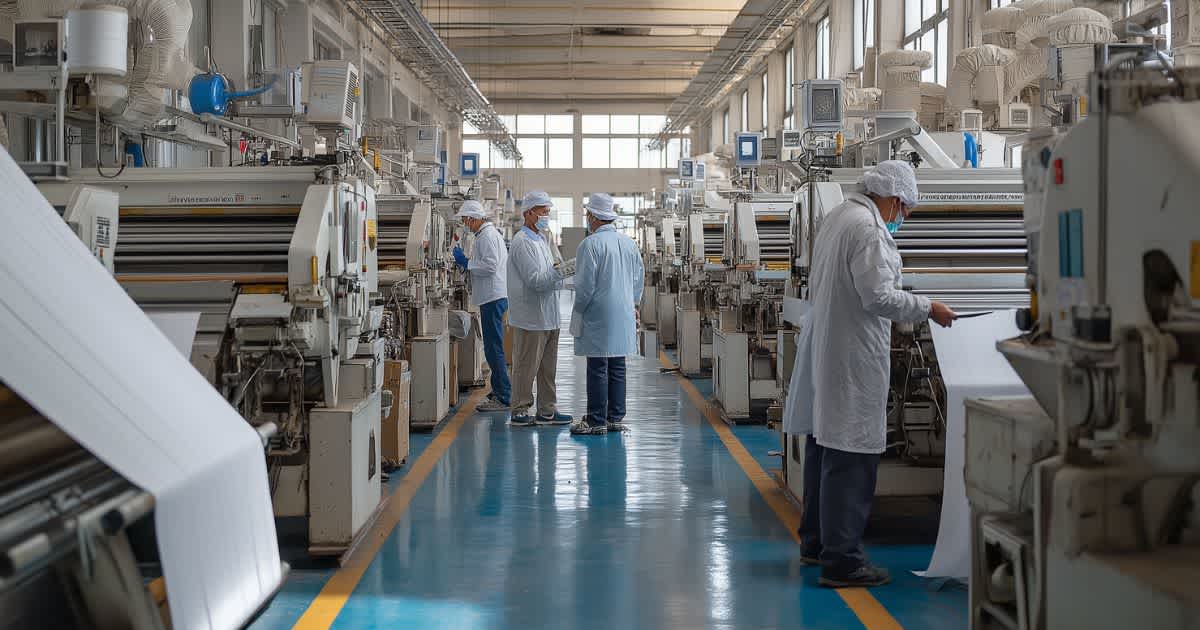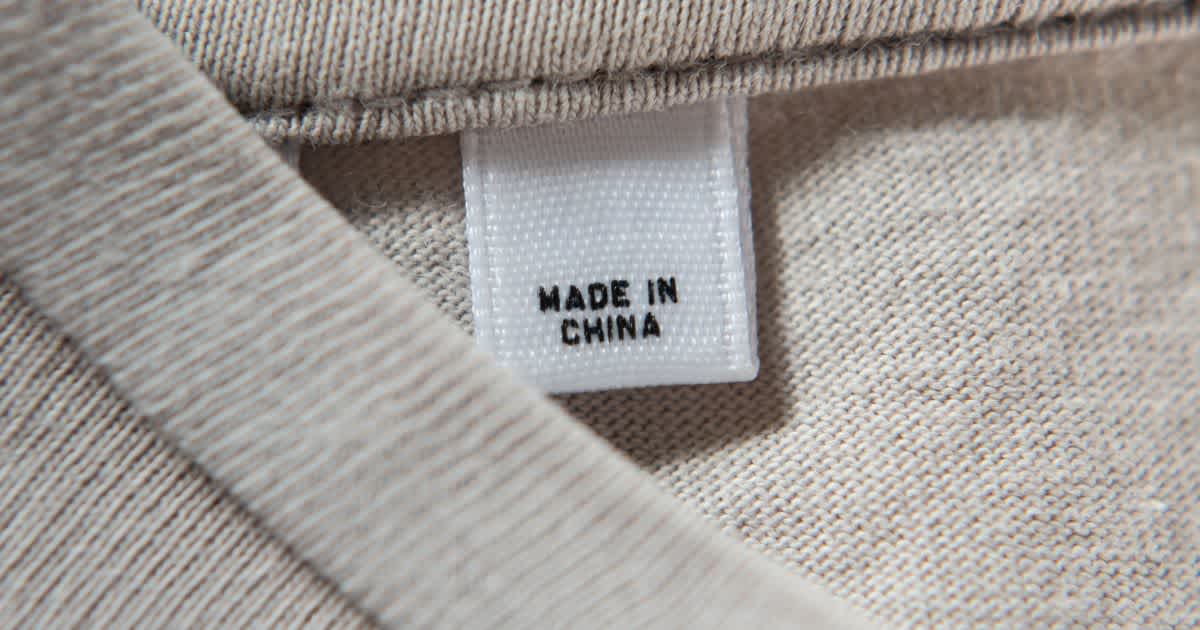Table of Contents
- What is quality control?
- Why quality checks are so important
- What quality control methods are there?
- What role quality standards play
- Can digitalisation improve quality control?
- The role supply chains play in quality
- What does quality control look like at Line Up?
- Four pillars of quality control
- Carry out quality controls, ensure quality standards
Quality control in the product development
Reading Time: 5 min.

Quality is a decisive success factor in product development, but it is not a sure-fire success. How does quality control work? And what methods are used to fulfil even the highest demands?
In our globalised economy, where products are often manufactured in large quantities and in different production facilities, quality control is a must. This is because quality checks can use various test procedures to ensure that the manufactured products meet the defined specifications and quality requirements before they reach the market.
What is quality control?
Quality control encompasses all methods, measures and technologies used to ensure the quality of products. By referring to the sampling and evaluation of manufactured goods throughout the entire production process, it represents a central part of comprehensive quality management, which also includes quality assurance and the continuous improvement process.
Why quality checks are so important
Particularly in the procurement sector, where products are usually manufactured and delivered by external manufacturers on a large scale and under time pressure, seamless quality control plays a decisive role, as it:
This ensures customer satisfaction, because faulty products can lead to complaints and damage trust in a brand.
Costs are reduced because early fault detection avoids expensive reworking or recalls, which are often associated with high financial costs.
The brand image is protected, as consistent product quality strengthens the company's reputation and promotes customer loyalty.
What quality control methods are there?
A frequently used method is visual inspection, in which employees check the products for visible defects. Statistical process control (SPC) also plays an important role: production processes are monitored by continuously recording and analysing data in order to detect deviations at an early stage and make corrections. In addition, destructive and non-destructive tests are carried out to test the mechanical properties of products.
A particularly widespread method that is also used at Line Up is the use of Acceptable Quality Level ( AQL ), in which a random sample of products is taken and checked against defined quality criteria. In this way, AQL ensures that an acceptable error rate is maintained without compromising production efficiency. As a result, the balance between product quality and cost-effectiveness is maintained, which is a particular advantage in series production.
What role quality standards play
International quality standards and certifications ensure that products meet the requirements of global markets. They create uniform standards that must be adhered to by companies worldwide in order to guarantee quality, safety and efficiency. They provide a clear framework against which products and services can be tested and assessed.
ISO 9001 certificates for quality management systems
ISO 9001 is the most widely used standard for quality management systems worldwide. It specifies the requirements that companies must fulfil in order to implement an effective quality management system.
CE labelling for conformity in the European Union
CE labelling is a legal requirement for many products sold within the European Economic Area (EEA). It shows that a product fulfils the essential requirements of the EU in terms of safety, health and environmental protection.
DIN standards for German standards with global relevance
DIN standards (German Industrial Norms) are national standards developed by the DIN (German Institute for Standardisation). They cover a wide range of industries and ensure that products meet internationally recognised standards in Germany.
TÜV-Zertifizierung für geprüfte Sicherheit und Qualität
TÜV certification is a widely used and globally recognised standard that focuses in particular on testing safety and quality. TÜV (Technischer Überwachungsverein) carries out tests to ensure that products meet the applicable safety standards and are safe to use.
Can digitalisation improve quality control?
Definitely, because the use of digital technologies allows processes to be optimised and therefore also significantly improve product quality. Above all, it is the Internet of Things (IoT) that makes it possible to monitor production processes in real time using networked devices and sensors. Deviations and potential errors can be recognised and rectified immediately, ensuring high quality in the production process.
Machine learning (ML) also plays a key role: by analysing large amounts of data, algorithms can recognise patterns and predict errors before they actually occur. Automated inspection systems also contribute to optimisation by enabling continuous, high-precision inspection of products and minimising human error.
The role supply chains play in quality
Assured product quality does not end with production. Rather, comprehensive quality control should extend along the entire supply chain. This means that strict criteria must already be applied when selecting suppliers. In addition, regular audits and supplier evaluations can help to ensure that the quality standards that have been set are maintained in the long term.
We know only too well from our own experience that strict quality controls are particularly important in international supply chains. Local laws, standards and cultural differences often pose challenges that are successfully overcome through regular audits and inspections. Line Up therefore relies on a seamless monitoring system to ensure that all international partners fulfil the high quality requirements.
What does quality control look like at Line Up?
At Line Up, quality control is an integral part of the entire production process. Our aim is to establish the highest quality standards as early as the sampling process and thus ensure that the subsequent series production runs flawlessly. This step enables us to optimise the production processes and meet the demands of our customers.
We use Acceptable Quality Levels (AQL) and regular spot checks to ensure that all products meet the specified quality requirements. To this end, we attach great importance to maximising the efficiency of our processes without compromising on product quality.
In addition, we at Line Up have set up our own specialised quality control unit, the Line Up Quality Control Team. Our task force monitors every step of the production process and ensures that all products meet the highest German quality standards.
Four pillars of quality control

1. Continuous improvement process
We are constantly working to avoid errors and optimise the quality of our products.
2. Supplier audits
Regular inspections of our suppliers ensure that the specified quality standards are met.
3. Quality checks before dispatch
Before the products leave our factory, we carry out final quality checks to ensure that they meet the required specifications.
4. International quality standards
We consistently apply our strict standards to suppliers and production facilities in Asia in particular in order to guarantee the required product quality.
Carry out quality controls, ensure quality standards
You realise: Quality control is a key factor for successful products and therefore the success of a company. It is important to use modern methods and technologies to ensure product quality while complying with relevant standards.
Line Up relies on customised solutions that accompany the entire production and procurement process. From the selection of suppliers to auditing and final product control: you can rely on our expertise to ensure the quality of your products and satisfy your customers.
Arrange a consultation now!
Newsletter Registration
Sign up now for our free Line Up newsletter and stay up to date.





